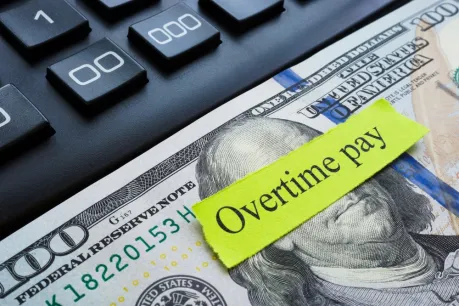Understanding New York State Overtime Laws: What Every Worker Should Know

Injured?
In New York, working long hours doesn’t just demand stamina; it deserves proper pay. Unfortunately, many employees across the city work overtime without ever receiving the wages they’ve rightfully earned. From wage theft to misclassification, employers often find ways to bend the rules, leaving workers unpaid and frustrated.
At Morgan & Morgan, we represent workers across New York City, including hourly staff, tipped employees, and salaried professionals, who are being denied overtime. If you’ve worked more than 40 hours in a week and haven’t seen those extra hours reflected in your paycheck, you could have a case.
Who’s Entitled to Overtime in New York?
New York law, like the federal Fair Labor Standards Act (FLSA), requires that non-exempt employees receive one and a half times their regular pay for every hour worked over 40 in a given workweek. This includes workers in restaurants, warehouses, retail, construction, health care, and many white-collar fields.
Even salaried employees can qualify for overtime if they make under a certain amount or don’t perform duties that exempt them under labor laws. Unfortunately, employers sometimes misclassify workers as exempt or independent contractors to avoid paying time-and-a-half.
If you're unsure about your classification or whether you're entitled to overtime, that's where legal experience comes in.
When Overtime Doesn’t Mean Extra Pay
Just because you’re working nights, weekends, or holidays doesn’t mean your employer is automatically required to pay you overtime. If you haven’t surpassed the 40-hour threshold for the week, those hours may still count as regular time, unless your contract or union agreement states otherwise.
Where things get complicated is when employers offer or insist on compensatory time instead of paying you. In most cases, especially in the private sector, this practice is illegal. Comp time, or compensatory time off, can’t legally replace overtime wages for most New York workers. If your boss is trying to swap paid hours for future time off, that could be a red flag.
Wage Theft Isn’t Just a Buzzword; It’s Illegal
Wage theft can take many forms: refusing to pay overtime, misclassifying employees, altering timesheets, or expecting employees to work “off the clock.” These tactics aren’t just unfair; they’re illegal under New York labor laws.
Many workers don’t realize that wage theft is happening to them until weeks or months have passed. And when they do, they may be afraid to speak up, especially if they’re undocumented, in a vulnerable position, or working paycheck to paycheck.
But here’s what the law says: your immigration status does not affect your right to be paid for your time. If your employer is stealing your wages, you can take action, no matter your background or industry.
What Industries Are Most at Risk?
Unpaid overtime happens in nearly every industry, but certain workers are disproportionately affected:
- Restaurant and hospitality workers
- Delivery drivers and warehouse staff
- Home health aides and caregivers
- Janitorial and cleaning crews
- Freelancers and gig workers who are misclassified as independent contractors
- Employees in retail or small businesses with minimal HR oversight
These workers are often told they’re salaried, part-time, or simply “not eligible” for overtime, but the law may say otherwise.
What to Do If You’re Not Getting Paid
If you suspect you're missing out on overtime wages, start by keeping your own records. Track your hours, note any breaks or off-the-clock duties, and save communications with your employer about scheduling or pay. Then, consider speaking with a wage and hour attorney.
At Morgan & Morgan, we’ve helped countless employees file successful wage theft claims and recover the pay they’re owed. Whether your case involves a single employer or a broader class action lawsuit, we’re prepared to handle the fight.
Don’t Let Your Employer Intimidate You
No one should be punished for asking to be paid fairly. If your employer retaliates, whether through demotion, reduced hours, or threats, that’s another violation of your rights under New York labor law.
And if you’re concerned about legal costs, our attorneys work on a contingency fee basis. That means you don’t pay anything unless we win your case.
Your Time Is Valuable. Let’s Make Sure It’s Paid.
Whether you're clocking in at a Manhattan restaurant, a Queens warehouse, or a remote job based in upstate New York, your time has value. If your paycheck doesn’t reflect the hours you’ve put in, you don’t have to accept it, and you don’t have to go it alone.
Morgan & Morgan has the resources and experience to take on wage and hour violations across the city and state. From unpaid overtime to employer retaliation, we’ve seen it all, and we know how to fight back.
If your employer is shorting your paycheck, you might be owed more than you think. Fill out a free case evaluation today and let us help you recover every dollar you earned.


